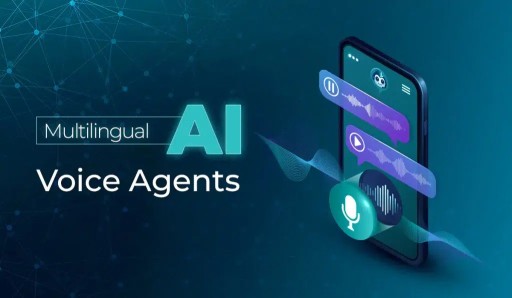


Learn how multilingual voice agents help businesses connect with customers worldwide, improving communication and support across regions.
In today’s hyper-connected world, customer expectations have shifted dramatically. Businesses are no longer competing only on product or price—they are competing on customer experience. Communication is a crucial part of that experience, and for organisations serving international markets, language becomes the first barrier.
This is where Multilingual Voice Agents and AI voice assistants are changing the game, offering a scalable way to engage customers in their preferred language. By providing scalable, real-time, and personalised communication in multiple languages, these technologies allow businesses to deliver seamless support, ensuring every customer feels heard and understood, no matter where they are.
In this blog, we’ll explore why Multilingual Voice Agents matter, the technology powering them, their role in scaling global communication, and how AI voice assistants are helping businesses grow internationally.
Language has always been the bridge between businesses and customers. A missed word or misunderstood phrase can easily turn a potential sale into frustration. Traditional call centres often rely on bilingual staff or translation services, but both come with limitations:
By contrast, Multilingual AI chatbots and voice agents can interact across dozens of languages in real time. They provide businesses with an always-available communication layer, ensuring every customer—from Sydney to São Paulo—feels understood.
For global brands, this isn’t just a convenience; it’s a necessity. Markets such as Europe and Asia have linguistic diversity woven into daily life, and companies expanding into these regions need solutions that match that complexity.
Modern AI voice agents rely on a combination of natural language processing (NLP), speech recognition, and machine learning. Here’s how they work:
Unlike static scripts, Multilingual Voice Agents learn and improve over time. What makes them powerful is their ability to handle nuances like slang, accents, and cultural idioms.
Hiring a multilingual support team is costly and often impractical. Imagine a retailer entering five new markets. Building separate language teams for each would take months and stretch budgets. A multilingual AI chatbot can
This hybrid approach reduces wait times, increases resolution rates, and allows human teams to focus on higher-value interactions. It also supports 24/7 availability without the overhead of global staffing.
One of the common concerns with automation is the loss of a human touch. The reality is that multilingual voice agents can personalise experiences more effectively than traditional models. They draw on customer histories, purchase data, and even tone of voice to tailor responses.
For example, a customer in France enquiring about a delayed delivery can be greeted in French, updated with real-time tracking data, and even offered alternative solutions—without needing a French-speaking human agent on duty. The interaction feels local, even when AI powers it.
Multilingual voice technology is not confined to one sector. Its applications span across industries:
In each case, the technology provides a consistent and inclusive customer journey.
As AI models evolve, we can expect multilingual voice agents to grow even more sophisticated. We can expect to see innovations such as:
These advances will ensure that AI voice assistants understand not only what customers are saying but also how they’re feeling and respond accordingly.
While the benefits are clear, businesses should approach adoption strategically. Important considerations include:
If you want to focus on empowering organisations to overcome the barriers of geography and language through intelligent communication tools, Tricall.ai can help. We assist businesses in navigating these challenges, ensuring multilingual communication solutions are tailored to their unique needs.
By integrating multilingual AI voice assistants into customer workflows, Tricall.ai helps businesses:
Rather than replacing human agents, Tricall.ai’s AI voice assistant solutions augment them. Routine queries are handled instantly, while human staff are free to concentrate on cases that require empathy and complex decision-making. This balance ensures customers receive both speed and care; no matter where they are in the world.
Contact us now and partner with us to confidently enter new markets, knowing that every customer interaction—whether in English, Mandarin, or Spanish—will feel effortless and authentic.
Multilingual voice agents are AI-powered systems that can understand and respond in multiple languages, enabling businesses to serve diverse customer bases seamlessly.
Regular chatbots operate in a single language, while multilingual AI chatbots are designed to interpret, translate, and respond across many languages without losing context.
Not entirely. They handle routine queries efficiently, but complex issues or emotionally sensitive cases are best managed by human staff. Together, they create a hybrid model.
Yes, provided they are implemented with strong encryption, compliance checks, and secure integrations. Many banks already use them for multilingual support.
Tricall.ai provides customised integration of multilingual AI chatbots and voice agents into customer service workflows, ensuring smooth adoption and measurable business value.
Know More: https://tricall.ai/multilingual-voice-agents-global-communication/
